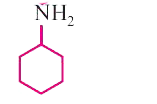Which of these is the weakest base?
NaOH
KOH
Ca(OH)2
Zn(OH)2
To determine which of the given compounds is the weakest base among sodium hydroxide (NaOH), potassium hydroxide (KOH), calcium hydroxide (Ca(OH)₂), and zinc hydroxide (Zn(OH)₂), we can analyze their properties based on their cations and how they interact with hydroxide ions (OH⁻).
1. Identify the Compounds: We have four compounds to consider:
- Sodium hydroxide (NaOH)
- Potassium hydroxide (KOH)
- Calcium hydroxide (Ca(OH)₂)
- Zinc hydroxide (Zn(OH)₂)
2. Determine the Cation Characteristics:
- Sodium (Na⁺) and potassium (K⁺) are alkali metals (Group 1), which typically form strong bases due to their ability to easily lose one electron.
- Calcium (Ca²⁺) is an alkaline earth metal (Group 2) and can lose two electrons, also forming a strong base.
- Zinc (Zn²⁺) is a transition metal (Group 12) and tends to form weaker bases compared to alkali and alkaline earth metals.
3. Basicity Trend:
- Basicity generally increases down a group in the periodic table. Therefore, KOH is stronger than NaOH, and Ca(OH)₂ is stronger than both NaOH and KOH.
- However, as we move across a period, the basicity tends to decrease due to increasing effective nuclear charge, which makes it harder for the cation to lose electrons.
4. Analyze the Hydroxides:
- NaOH and KOH are strong bases and dissociate completely in water.
- Ca(OH)₂ is also a strong base, but it is less soluble in water than NaOH and KOH.
- Zn(OH)₂ is amphoteric and does not dissociate completely in water, meaning it does not release OH⁻ ions readily.
5. Conclusion:
- Among the four hydroxides, zinc hydroxide (Zn(OH)₂) is the weakest base because it does not dissociate completely in solution and has a strong bond between Zn²⁺ and OH⁻ ions, making it less likely to release hydroxide ions compared to the others.
Final Answer:
Zinc hydroxide (Zn(OH)₂) is the weakest base among the given options.
- Sodium hydroxide (NaOH)
- Potassium hydroxide (KOH)
- Calcium hydroxide (Ca(OH)₂)
- Zinc hydroxide (Zn(OH)₂)
- Sodium (Na⁺) and potassium (K⁺) are alkali metals (Group 1), which typically form strong bases due to their ability to easily lose one electron.
- Calcium (Ca²⁺) is an alkaline earth metal (Group 2) and can lose two electrons, also forming a strong base.
- Zinc (Zn²⁺) is a transition metal (Group 12) and tends to form weaker bases compared to alkali and alkaline earth metals.
- Basicity generally increases down a group in the periodic table. Therefore, KOH is stronger than NaOH, and Ca(OH)₂ is stronger than both NaOH and KOH.
- However, as we move across a period, the basicity tends to decrease due to increasing effective nuclear charge, which makes it harder for the cation to lose electrons.
- NaOH and KOH are strong bases and dissociate completely in water.
- Ca(OH)₂ is also a strong base, but it is less soluble in water than NaOH and KOH.
- Zn(OH)₂ is amphoteric and does not dissociate completely in water, meaning it does not release OH⁻ ions readily.
- Among the four hydroxides, zinc hydroxide (Zn(OH)₂) is the weakest base because it does not dissociate completely in solution and has a strong bond between Zn²⁺ and OH⁻ ions, making it less likely to release hydroxide ions compared to the others.
Zinc hydroxide (Zn(OH)₂) is the weakest base among the given options.
Topper's Solved these Questions
Similar Questions
Knowledge Check
Which of these is the weakest base?
ANaOHBKOHCCa(OH)2DZn(OH)2Which one of them is the weakest ?
Alonic bondBCovalent bondCMetallic bondDvan der Wall's forcesWhich is the weakest base :
A B
B C
C DCH3NH2
DCH3NH2
